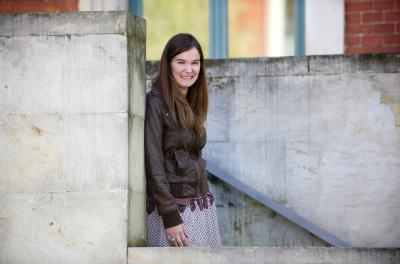This press release is available in Spanish.
Although citizen participation is starting to be an increasingly common practice in local administrations, some pieces of research have pointed out that this practice goes hand in hand with the emergence of citizen detachment with respect to the public institutions and an increase in political mistrust.
In this context, Noemí Bergantiños, a PhD holder in Political Science and Administration from the University of the Basque Country, has studied in a PhD thesis creative mistrust within the framework of three experiences in citizen participation in two different periods: in the last years of the political transition [to democracy following the demise of Franco in 1975] and the first decade of this century.
As pointed out by the author of the thesis entitled Democracia, participación y desconfianza. Escenarios de desconfianza creativa en procesos de participación local en la Comunidad Autónoma del País Vasco (Scenarios of creative mistrust in local participation processes in the Basque Autonomous Community), the study sought "firstly to see whether political mistrust is really a problem for democracy, as some authors suggest, and secondly, and more specifically, to check whether citizen participation processes allow this mistrust to be corrected".

Noemí Bergantiños is a Ph.D. holder in Political Science and Administration from the UPV/EHU.
(Photo Credit: UPV/EHU)
For her analysis Bergantiños chose three experiences in citizen participation which, having had a certain continuity in time, have enabled her to compare their development in two different contexts; specifically, in the political transition and nowadays. These experiences are the district assemblies in Laudio-Llodio, the District Council of Rekalde (Bilbao), and the Municipal Council of Olarizu (Vitoria-Gasteiz).
Noemí Bergantiños explains why she chose these two scenarios: "I wanted to compare these two periods because a certain democratic deficit can be observed in each one. In the last years of the transition there was obviously no formal democracy, but there was a discourse on that democratic deficit, and a call for democracy, so to speak. Yet nowadays, there is formal democracy but also a discourse very much centred on the shortfalls and deficits in the current forms of democracy."
Creative mistrust and impolitic mistrust
The results of the study conducted by Bergantiños reveal the differences between the forms of mistrust during the last years of the transition and today: "The analysis shows that the mistrust existing in those years was a creative mistrust, of proactive, defiant responsibility, whereas the current form of mistrust on occasions puts the blame at the feet of an impolitic trend." As the author herself explains, this form of mistrust is translated into positions of resignation and scepticism and into significant detachment between the social sphere and the political sphere.
With respect to the conclusions of the study, Bergantiños believes that "in the end all the spaces for participation that endeavour to further democracy are positive, because they allow people to try and transform the elements that have to do with the political system that they criticise; but the truly positive, transforming development depends firstly on the activation of these positive forms and secondly, and in addition, on institutions that allow there to be a positive impact in which the creative forms generated are not repressed in the spaces for citizen participation."
Source: Elhuyar Fundazioa